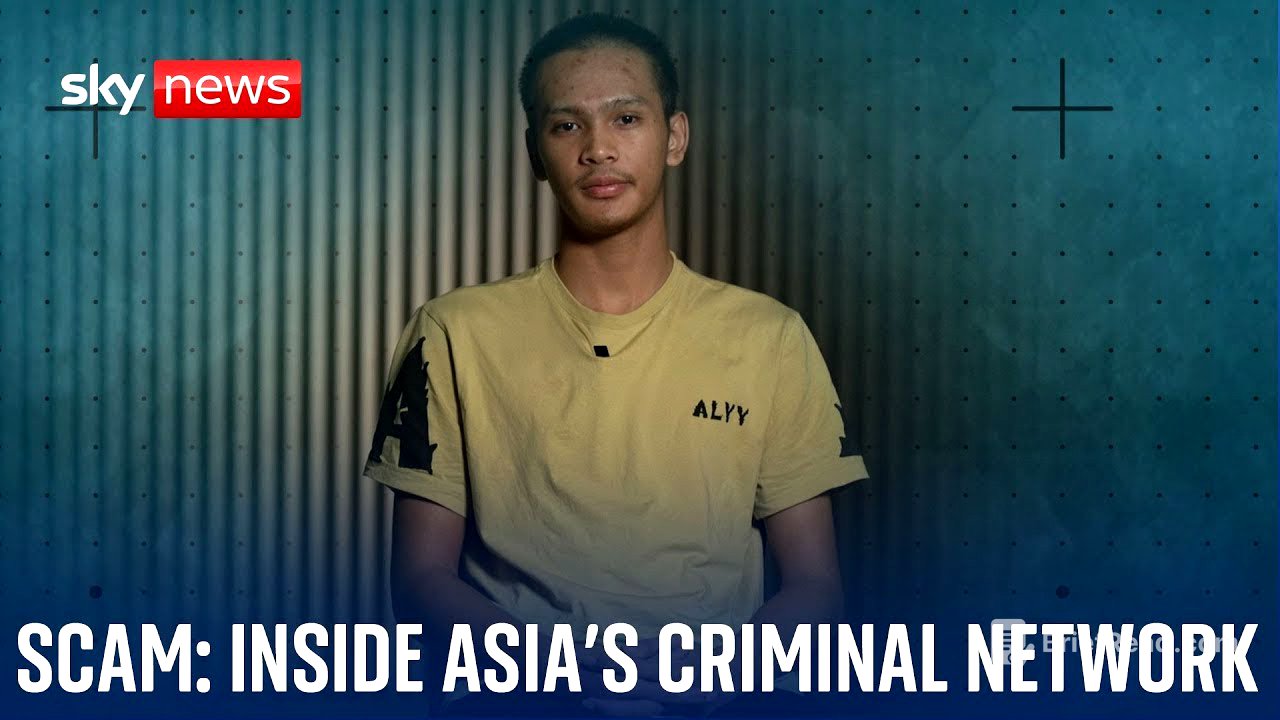TLDR;
This Sky News investigation uncovers the dark world of Southeast Asian scam centres, where individuals are trafficked and forced into cyber slavery, defrauding people worldwide through online scams. The investigation highlights the scale of the criminal network, the brutal conditions within these compounds, and the challenges in combating this global trafficking crisis.
- The scam centres are often run by Chinese Mafia, supported by local militias.
- Victims are subjected to torture and forced to meet quotas.
- The industry is booming in plain sight, with new compounds constantly emerging.
Introduction: Unveiling the Scam Centres [0:04]
The report introduces a story of corruption and greed within a billion-dollar industry involving secretive, vast, and sometimes deadly enterprises. Failure to meet targets in these scam centres can result in torture worse than horror movies. The investigation aims to go undercover inside Southeast Asia's scam centres, revealing a criminal network where countless financial victims are duped.
The Mission: Investigating Tai Chong [1:35]
Judana is on a mission in Thailand, near the Myanmar border, where thousands are trapped in prison-like scam compounds, forced to defraud people online. Many are trafficked, tortured, and forced into cyber slavery. Victims face brutal conditions, including confinement in windowless dark rooms, chaining, starvation, and tasering. Exorbitant ransoms are often required for their release. The investigation focuses on a compound called Tai Chong, recently built and rapidly expanding, highlighting the scale and visibility of these operations near the Thai border.
Inside Yati New City [5:10]
The investigation gains rare access to Yati New City in Myanmar, a sprawling area of compounds and casinos. The city management claims it's a normal town, but the area feels like a "little China," with Mandarin signs and a predominantly Chinese population. Despite China's crackdown on the scamming industry, money from the Chinese underworld still drives it. Security is tight, with phone checks and escorts, and the chairman of Yati denies profiting from the compounds or tolerating scamming and human trafficking.
Cambodia: Investigating Bavet [9:55]
The team tracks a key area in Cambodia near the Vietnam border called Bavet, known for shocking stories of scamming. A former romance scammer, Pum Dry, shares his experiences, revealing the murky world of illegal gambling, love scams, and crypto fraud. Scammers face brutal targets, and Pum Dry himself was a victim turned perpetrator. The team attempts to locate the compound where Pum Dry nearly died, facing challenges due to high security.
Infiltration Attempt and Recruitment [13:46]
The team decides to infiltrate the heavily guarded compounds by posing as potential workers. They visit a building where a large rescue occurred two years prior, suspecting ongoing scam operations. Despite a heavy security presence, they are unable to proceed without an appointment. They then focus on Bavet, attempting to infiltrate the fortress-like city. After two days, they receive a lead from a recruiter willing to discuss potential work.
Meeting the Recruiters and the Boss [17:06]
The recruiters are surprisingly open about the scam operations, including "pig butchering," where victims are tricked into investing more money before being exploited. They reveal that scammers can earn high salaries and bonuses. The recruiters arrange a job interview, and the team is taken to a compound where they meet the "boss," the head of HR, and other employees. The team admits that their work is illegal and involves scamming people from the US.
Inside the Scam Rooms [20:13]
The team is shown the accommodation and then exposed to the highly secretive scam rooms. These rooms are filled with mostly Chinese individuals using multiple phones to conduct conversations with victims online. The team observes the organised and structured environment, with rows of people focused on defrauding individuals worldwide.
The Human Cost and Lack of Prosecution [21:33]
Across the border in Thailand, the cost of the industry is crushing. Cher recounts the death of his brother, Chia, who he believes was pushed from a compound in Cambodia. Despite the vast range of scam centres and scammers, prosecutions are rare. While China has started to pursue some offenders and Cambodia claims to have as well, the industry continues to thrive with new compounds constantly emerging. What began as a regional crime has become a global trafficking crisis with millions of victims.









